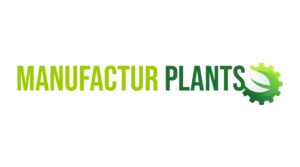The current manufacturing industry demands precise measurements and accurate results for guaranteeing product quality. The manufacturing industry relies heavily on CMM machines (coordinate measuring machines) for delivering exceptional quality control across various sectors. Coordinate measuring techniques installed in these machines and generate exact dimensional information to validate component compliance with specifications.
Why Industries Rely on CMM Machines
Quality assurance is essential in many industries to guarantee that products are up to design specifications, improve performance, and meet regulatory requirements. CMM machines are important in that they provide accurate measurement functions that assist in detecting manufacturing flaws and ensuring consistency.
1. Automotive Industry
The automotive industry is among the biggest consumers of CMM machines. Accuracy is crucial in ensuring engine components, transmission systems, and body parts are perfectly aligned. CMM machines allow manufacturers to measure complex dimensions of car parts with high accuracy, ensuring they conform to design requirements.
- Parts such as cylinder heads, crankshafts, and pistons go through stringent testing using coordinate measurement methods.
- These devices are vital in helping parts fit perfectly to enhance car performance, safety, and longevity.
2. Aerospace Industry
The aviation industry requires very stringent tolerances, where small deviations can be disastrous. CMM machines are central to the validation of dimensions of such vital parts as turbine blades, fuselage panels, and wing structures.
- State-of-the-art coordinate measurement systems provide accuracy for the production of jet engines, landing gears, and structural elements.
- Their capability to measure intricate geometries makes CMM machines instrumental in upholding the strict safety requirements of aerospace engineering.
3. Medical Device Industry
Medical devices require accuracy to guarantee patient safety and successful treatment results. CMM machines are commonly utilized to measure surgical devices, prosthetics, implants, and diagnostic equipment.
- Orthopedic implants, dental devices, and personalized medical solutions need precise measurement to ensure compatibility with the human body.
- Coordinate measuring methods to make these devices compliant with strict medical standards, lowering the chances of defects.
4. Electronics Industry
When devices become smaller in size, keeping accuracy in the production of components becomes more and more difficult. CMM machines are particularly well-suited for measuring micro-components such as circuit boards, connectors, and semiconductor chips.
- Coordinate measuring systems to guarantee these fragile parts meet design requirements, enhancing performance and minimizing product failure.
5. Energy Sector
The energy sector, particularly the oil, gas, and alternative energy industries, needs robust and precise components for equipment, pipes, and turbines. CMM machines are utilized to measure crucial parts utilized in energy generation and transmission.
- Accuracy in measuring valves, rotors, and heat exchangers confirms these parts function reliably under hostile conditions.
- Through coordinate measuring abilities, manufacturers have more control over tolerance levels, which boosts the lifespan of energy infrastructure.
6. Heavy Machinery and Equipment Manufacturing
Manufacturing industries of heavy equipment, including construction machinery, mining equipment, and agricultural equipment, rely on CMM machines for maintaining structural integrity.
- Massive parts such as gears, shafts, and housings need very careful inspection utilizing coordinate measuring methods.
- Accurate positioning of these parts is crucial in ensuring heavy machinery’s performance and safety.
7. Defense and Military Sector
The defense sector demands precision engineering for hardware such as missiles, guns, armor vehicles, and aircraft systems. CMM machines deliver a level of accuracy to fulfill defense specifications and guarantee mission-critical operation.
- From guided systems to tactical military equipment, coordinate measuring systems are critical for quality control.
Challenges in CMM Implementation
The use of CMM machines can dramatically enhance quality control but has its own problems. Businesses need to resolve some critical problems in order to achieve optimal performance and precise results. These include:
- Calibration Issues: Calibration is required from time to time to obtain accurate measurements. Minor variations will lead to grave errors, which affect product dependability and quality.
- Operator Training: The operation of CMM machines demands qualified personnel with software, programming, and measurement expertise. Lack of effective training leads to misinterpretation of data or improper use of machines.
- Environmental Factors: CMM machines are susceptible to environmental conditions such as temperature fluctuation, vibration, and dampness. To get an accurate measurement, the environment should be controlled.
- Software Management: Software governing coordinate measuring systems has to be updated periodically to remain compatible with changing manufacturing designs and standards.
- Maintenance Needs: Maintenance is necessary on a regular basis to avoid mechanical wear, sensor failure, or unplanned downtime. Scheduled regular inspection and replacement of parts prolong the life of machines and enhance reliability.
Conclusion
Industries that emphasize precision engineering and strict quality control heavily depend on CMM machines for precise measurement. From ensuring the safety of vehicles to reliability in aerospace and precision in medical devices, these machines have revolutionized standards in manufacturing.
Companies such as Sipcon Instruments provide cutting-edge coordinate measuring solutions, enabling industries to attain superior quality control with dependable CMM machines that provide accurate and reproducible results.
